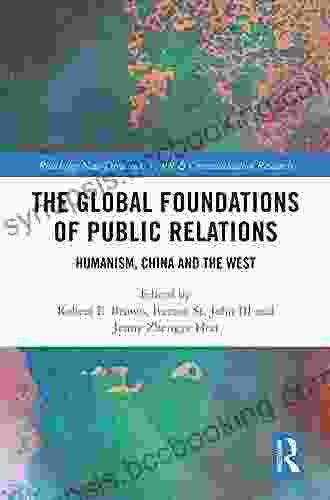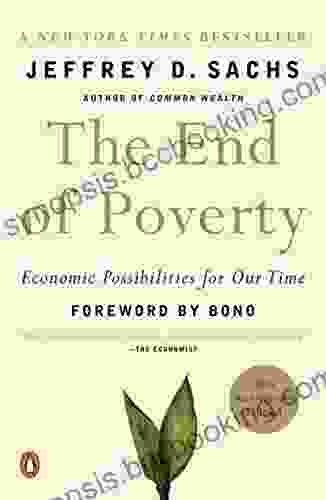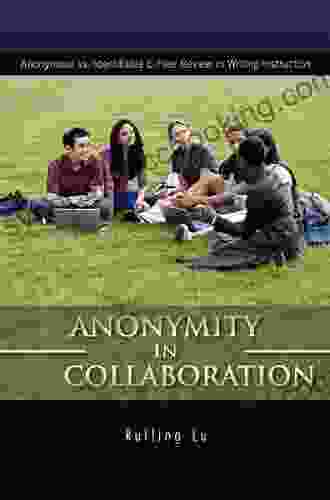Economic Possibilities for Our Grandchildren

By John Maynard Keynes
In his classic 1930 essay, "Economic Possibilities for Our Grandchildren," John Maynard Keynes argues that technological progress will eventually lead to a world of abundance, where work will become increasingly scarce. He predicts that our grandchildren will enjoy a standard of living that we can only dream of, with ample leisure time to pursue their passions and interests.
Keynes's essay is a fascinating and thought-provoking exploration of the future of work and the economy. He argues that the technological progress that has led to mass unemployment in the past will eventually lead to a world where work is no longer necessary. As machines become more and more efficient, they will be able to produce all of the goods and services that we need, leaving us with more time to enjoy our lives.
4.4 out of 5
| Language | : | English |
| File size | : | 23579 KB |
| Text-to-Speech | : | Enabled |
| Screen Reader | : | Supported |
| Enhanced typesetting | : | Enabled |
| X-Ray | : | Enabled |
| Word Wise | : | Enabled |
| Print length | : | 430 pages |
| X-Ray for textbooks | : | Enabled |
Keynes does not argue that work will disappear entirely. He believes that there will always be some jobs that need to be done by humans. However, he argues that the vast majority of work will be automated, leaving us with more free time than ever before.
Keynes's essay has been influential in shaping economic thought for generations. It has been cited by economists, policymakers, and futurists as evidence that the future of work is bright. However, Keynes's essay is not without its critics. Some economists argue that he underestimates the importance of work in human life. They argue that work provides us with not only income, but also a sense of purpose and identity.
Despite the criticisms, Keynes's essay remains a valuable contribution to the debate about the future of work. It is a reminder that technology has the potential to create a world of abundance, where we are all free to pursue our dreams.
Key Points
- Technological progress will eventually lead to a world of abundance, where work will become increasingly scarce.
- Our grandchildren will enjoy a standard of living that we can only dream of, with ample leisure time to pursue their passions and interests.
- Keynes does not argue that work will disappear entirely. He believes that there will always be some jobs that need to be done by humans.
- However, he argues that the vast majority of work will be automated, leaving us with more free time than ever before.
- Keynes's essay has been influential in shaping economic thought for generations.
"Economic Possibilities for Our Grandchildren" is a must-read for anyone interested in the future of work and the economy. Keynes's insights are still relevant today, and his essay provides a valuable perspective on the challenges and opportunities that lie ahead.

John Maynard Keynes was a British economist who is considered to be one of the most influential economists of the 20th century. He is best known for his work on Keynesian economics, which is a theory of macroeconomic fluctuations created in the 1930s. Keynes's ideas have been used by governments around the world to help manage their economies.
4.4 out of 5
| Language | : | English |
| File size | : | 23579 KB |
| Text-to-Speech | : | Enabled |
| Screen Reader | : | Supported |
| Enhanced typesetting | : | Enabled |
| X-Ray | : | Enabled |
| Word Wise | : | Enabled |
| Print length | : | 430 pages |
| X-Ray for textbooks | : | Enabled |
Do you want to contribute by writing guest posts on this blog?
Please contact us and send us a resume of previous articles that you have written.
 Book
Book Novel
Novel Page
Page Chapter
Chapter Text
Text Story
Story Genre
Genre Reader
Reader Library
Library Paperback
Paperback E-book
E-book Magazine
Magazine Newspaper
Newspaper Paragraph
Paragraph Sentence
Sentence Bookmark
Bookmark Shelf
Shelf Glossary
Glossary Bibliography
Bibliography Foreword
Foreword Preface
Preface Synopsis
Synopsis Annotation
Annotation Footnote
Footnote Manuscript
Manuscript Scroll
Scroll Codex
Codex Tome
Tome Bestseller
Bestseller Classics
Classics Library card
Library card Narrative
Narrative Biography
Biography Autobiography
Autobiography Memoir
Memoir Reference
Reference Encyclopedia
Encyclopedia R Manolakas
R Manolakas Rosanne Parry
Rosanne Parry Geoffrey Girard
Geoffrey Girard Steve Anthony Tallon
Steve Anthony Tallon Gaston Bachelard
Gaston Bachelard Gene Pease
Gene Pease Evanna Lynch
Evanna Lynch Gregg Jarrett
Gregg Jarrett Genny Nuckolls
Genny Nuckolls William Friar
William Friar Gillian Zoe Segal
Gillian Zoe Segal Le Roy H Appleton
Le Roy H Appleton Herbert L Roitblat
Herbert L Roitblat Geoffrey Douglas
Geoffrey Douglas Deborah Heiligman
Deborah Heiligman Henry M Stanley
Henry M Stanley Mo O Hara
Mo O Hara Gary White
Gary White Thomas D Schneid
Thomas D Schneid Garth Ennis
Garth Ennis
Light bulbAdvertise smarter! Our strategic ad space ensures maximum exposure. Reserve your spot today!
 Edison MitchellFollow ·4.2k
Edison MitchellFollow ·4.2k Eugene PowellFollow ·3.3k
Eugene PowellFollow ·3.3k Darnell MitchellFollow ·12.9k
Darnell MitchellFollow ·12.9k Ismael HayesFollow ·17.8k
Ismael HayesFollow ·17.8k Felix HayesFollow ·7.3k
Felix HayesFollow ·7.3k Peter CarterFollow ·18k
Peter CarterFollow ·18k Gage HayesFollow ·8.1k
Gage HayesFollow ·8.1k Ray BlairFollow ·18.9k
Ray BlairFollow ·18.9k

 Robert Heinlein
Robert HeinleinUnveiling Humanism in China and the West: A Journey...
In our rapidly...

 Brian Bell
Brian BellBlind Boy's Unwavering Struggle Against Abuse and the...
In the tapestry of...

 Craig Carter
Craig CarterBuilding Wealth While Working for Uncle Sam: The Ultimate...
## ### Are you a federal employee who wants...

 Raymond Parker
Raymond ParkerUnveiling the Secrets of Arabic Survival: The Ultimate...
Embarking on a journey to unravel the...
4.4 out of 5
| Language | : | English |
| File size | : | 23579 KB |
| Text-to-Speech | : | Enabled |
| Screen Reader | : | Supported |
| Enhanced typesetting | : | Enabled |
| X-Ray | : | Enabled |
| Word Wise | : | Enabled |
| Print length | : | 430 pages |
| X-Ray for textbooks | : | Enabled |
















